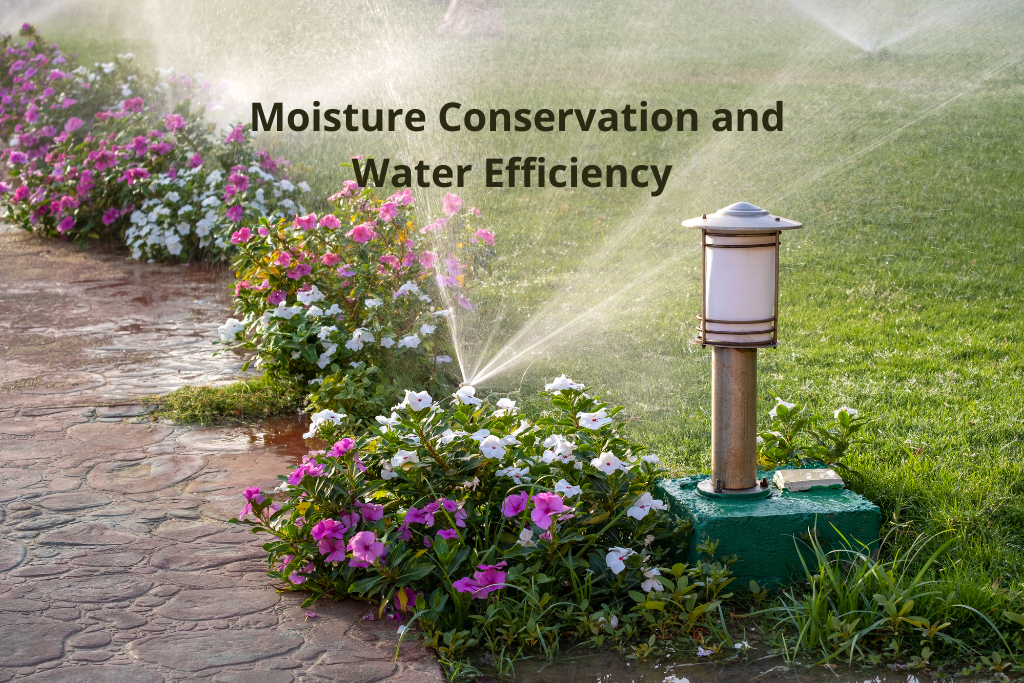Introduction
Mulch may seem like a simple lawn care tool, but its role in maintaining a healthy, vibrant lawn goes far beyond just adding visual appeal. It serves multiple purposes that help your lawn stay lush and green, especially during the growing season. In this post, we’ll dive deep into why mulch is a must-have for any lawn care routine, and how it can solve several common lawn problems.
1. Moisture Conservation and Water Efficiency
In areas prone to dry spells or where water conservation is a priority, mulch is one of the most effective ways to retain moisture in your soil. By creating a protective layer over the soil, mulch slows down water evaporation, ensuring that your lawn gets the hydration it needs.
How Mulch Aids in Water Conservation:
- Reduces Evaporation: A thick layer of mulch traps moisture in the soil, reducing the need for frequent watering.
- Maintains Hydration: Mulch keeps the moisture near the grass roots, which is essential for healthy growth, especially in hot weather.
2. Suppression of Weeds and Grass Competition
Mulch is an excellent tool for preventing weeds from taking over your lawn. By covering the soil, mulch blocks sunlight, which is essential for weed seeds to germinate and grow. This allows your grass to grow without competing with unwanted plants for nutrients and space.
How Mulch Fights Weeds:
- Blocks Light: Weed seeds need sunlight to sprout, and mulch prevents them from getting the light they need to grow.
- Decreases Seed Germination: By covering the soil, mulch creates a barrier that suppresses the growth of weeds, making it easier to maintain a healthy lawn.
3. Soil Health and Fertility Boost
Mulch not only protects the soil but also enhances its quality. Organic mulch decomposes over time, adding vital nutrients back into the soil. This process helps improve the overall health and fertility of your lawn, providing a better environment for your grass to grow.
Benefits of Organic Mulch:
- Adds Nutrients: As organic mulch breaks down, it releases important nutrients like nitrogen, phosphorus, and potassium, which are essential for healthy grass.
- Promotes Healthy Microorganisms: Decomposing mulch creates a habitat for beneficial soil organisms that break down organic material and improve soil structure.
4. Temperature Regulation for Lawn Health
Mulch helps regulate soil temperature, which is particularly beneficial during the extreme fluctuations of seasonal changes. During hot weather, mulch keeps the soil cool, and in cold weather, it helps insulate the roots from freezing temperatures.
Temperature Control Benefits:
- Cooler Soil in Summer: Mulch keeps the soil beneath it cooler, reducing heat stress on grass during the hottest months of the year.
- Warmer Soil in Winter: During winter, mulch acts as insulation, keeping the soil temperature stable and protecting grass roots from frost.
5. Aesthetic Value and Lawn Design
Beyond its functional benefits, mulch also enhances the appearance of your lawn and garden. Whether you opt for decorative wood chips, shredded bark, or colored mulch, it adds a polished, uniform look to your landscape that complements your plants and grass.
Aesthetic Benefits of Mulch:
- Visual Appeal: Mulch adds color and texture to garden beds, giving your lawn a well-maintained, uniform appearance.
- Customizable Options: With various mulch types available, from natural bark to vibrant colors, you can choose one that suits your landscaping design.
6. Preventing Soil Erosion on Sloped Lawns
If your lawn has a slope, erosion can become a significant concern. Mulch helps to stabilize the soil by reducing the impact of rainwater and preventing soil from washing away. This is especially important during heavy rains when runoff is more likely to erode the soil.
Erosion Prevention Benefits:
- Stabilizes Soil: Mulch helps keep soil in place on slopes, preventing it from being washed away by heavy rains.
- Reduces Runoff: Mulch slows down water runoff, allowing the soil to absorb moisture more effectively, reducing erosion.
7. Pest Control and Lawn Protection
Certain types of mulch, such as cedar or pine bark, have natural pest-repellent properties. These types of mulch help keep insects, rodents, and other pests at bay, reducing the need for chemical treatments in your lawn. If you're looking for effective ways to maintain a healthy yard, consider reaching out to a lawn care service near me for expert guidance on mulching and pest prevention.
Pest-Repellent Mulch:
- Cedar Mulch: Known for its ability to repel insects and keep pests away from plants.
- Pine Bark Mulch: This type of mulch is also great for deterring pests and can add a pleasant aroma to your yard.
Conclusion
Mulch is more than just an aesthetic addition to your lawn. From improving water retention and soil fertility to preventing weeds and pests, it offers numerous advantages that contribute to a healthy, thriving lawn. By incorporating mulch into your lawn care routine, you’ll create a better environment for your grass and garden to flourish year-round.





Comments